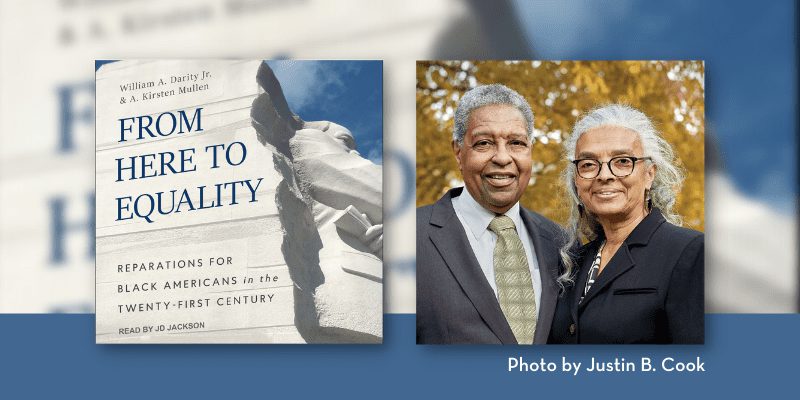By Christian Harris
Note: A version of this post first appeared in Wednesday Journal and OakPark.com on December 7, 2021. Read the piece on OakPark.com »
As a young Black man growing up in Oak Park, I was never taught that Black people lived here before the 1950s, when world-renowned chemist Percy Julian moved in. I would later learn there were Black people living in Oak Park as early as 1880.
I was stunned.
This narrative has been largely erased from our history. Spreading awareness is key to the work of Walk the Walk, the grassroots group I co-founded with Danielle Morales and Chris Thomas.
In November, we launched an Oak Park Reparations Task Force composed of nine Black community members. The goal is to give detailed recommendations to Oak Park taxing bodies, residents, nonprofits, for-profits, and religious institutions on how to repair the harm done to the Black community since 1880.
We’ve been working on this initiative since June 2020 and presented to the Oak Park Village Board, which Wednesday Journal covered, the early history of Black residents. The presentation illustrated how the board participated in limiting the growth of the Black community and wealth in Oak Park and as a result should try to repair the harm done.
We’ve also partnered with the Oak Park Public Library to co-host community programs about the history of early Black residents, the experiences of current Black residents, and reparations.
Moral & economic reasons for reparations
As the library’s Restorative Practices Coordinator Tatiana Swancy says, reparations are one way for the government to recognize and begin repairing a great harm that has been done to a person or group of people.
That research is backed up by recent action in Congress. H.R. 40, introduced by the late John Conyers, D-Detroit, in 1989, finally passed out of the House Judiciary Committee in April. It was the first time the committee voted on the legislation.
Reparations are important for both economic and moral reasons.
The moral case for reparations is twofold. Reparations promised to “freedmen” after emancipation were never paid, and the United States is in desperate need of a truth and reconciliation movement. It gives us a chance for all to look our history in the eye, acknowledge and repair the harms of the past and attempt to all move forward together.
The economic reasons are many but can be most clearly seen in the fact that from 1619 to 1865 Black enslaved Americans were not paid for their labor. As a result, Black people did not have money to invest, buy real estate, life insurance, start businesses or build generational wealth. The wealth they should have gained was used to fund wars, build cities, massive fortunes, and help propel the U.S. into a global superpower faster than any nation in history.
Throughout time, Black people have benefited the least from the wealth they built. Nationally, according to the Federal Reserve Board, the median wealth of white families is nearly eight times more than that of Black families. A 2017 report by Prosperity Now and the Institute for Policy Studies says median Black wealth in America is set to hit zero by 2053.
Black people deserve to be compensated fairly for our labor and contributions to the American experiment. The harms must be repaired.
Real-world examples of reparations
Reparations is not a foreign concept in the United States. Under the Civil Liberties Act of 1988, approximately 60,000 Japanese Americans, unjustly incarcerated in U.S. internment camps during World War II, were given $20,000 each.
More recently, Evanston has committed to paying $10 million over 10 years to Black residents to apply toward housing costs, using tax revenue from legal marijuana sales.
Asheville, North Carolina has committed to spending more than $2 million to invest in neighborhoods where Black residents have faced racial injustice and harm. In November, Walk the Walk and the library co-hosted a program with the Asheville mayor, and this month we’re continuing the discussion on a national level.
Join us December 14 for ‘From Here to Equality’
Our discussions will continue at 6:30 p.m., Dec. 14, with a talk via Zoom with Dr. William Darity Jr. and A. Kirsten Mullen, authors of From Here to Equality: Reparations for Black Americans in the Twenty-First Century, and thought leaders in the reparations movement.
Christian Harris is a consultant. He has been a resident of Oak Park since 1995.

